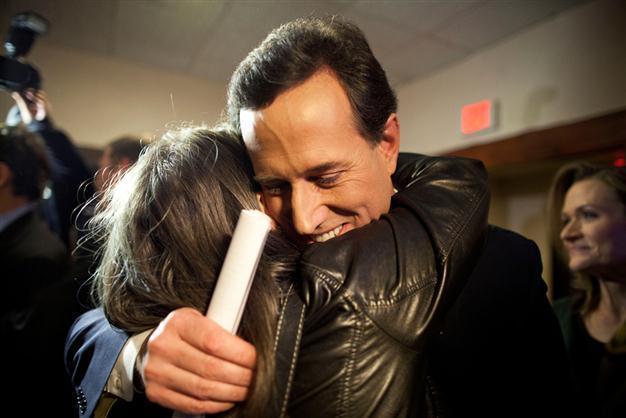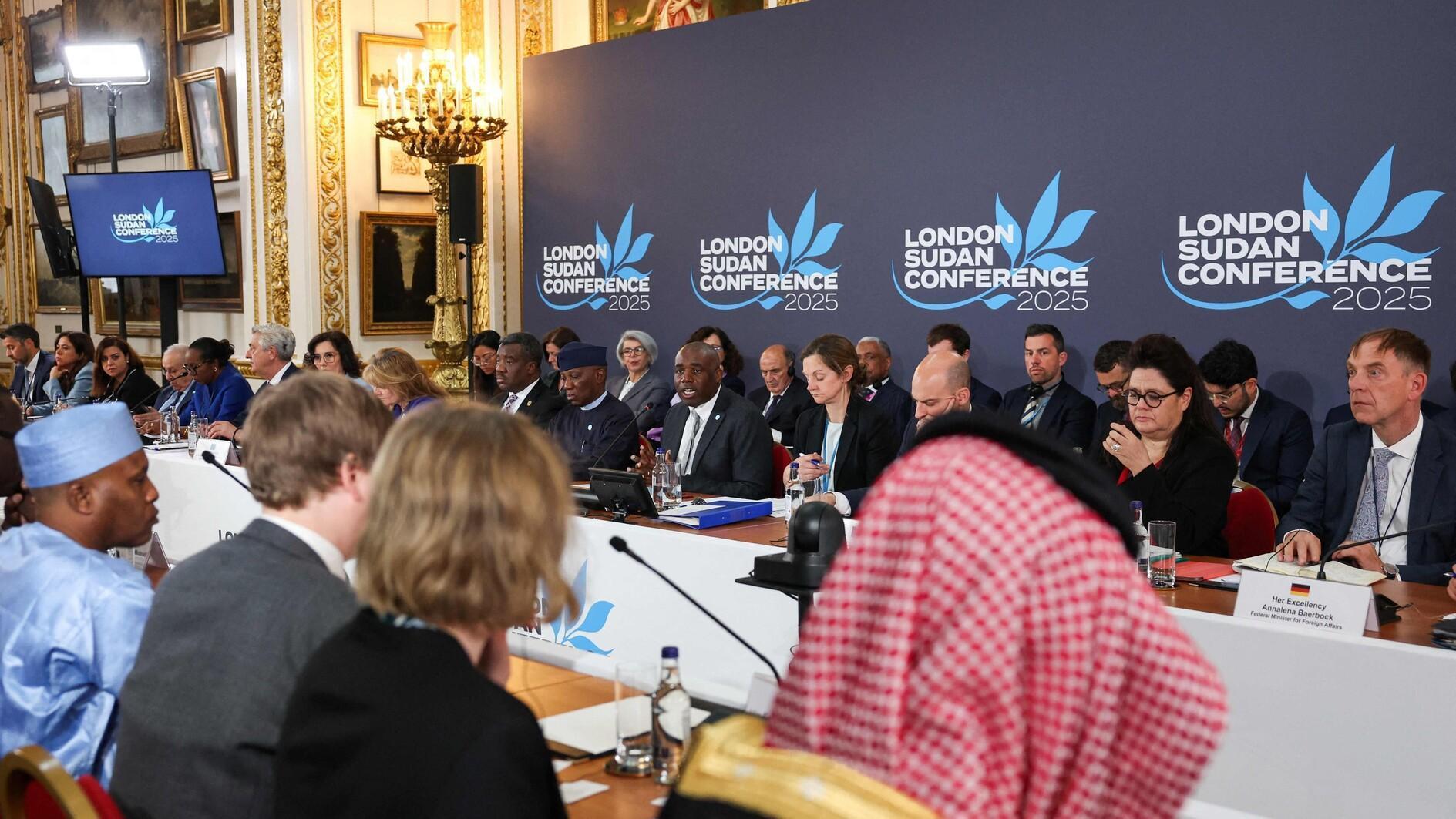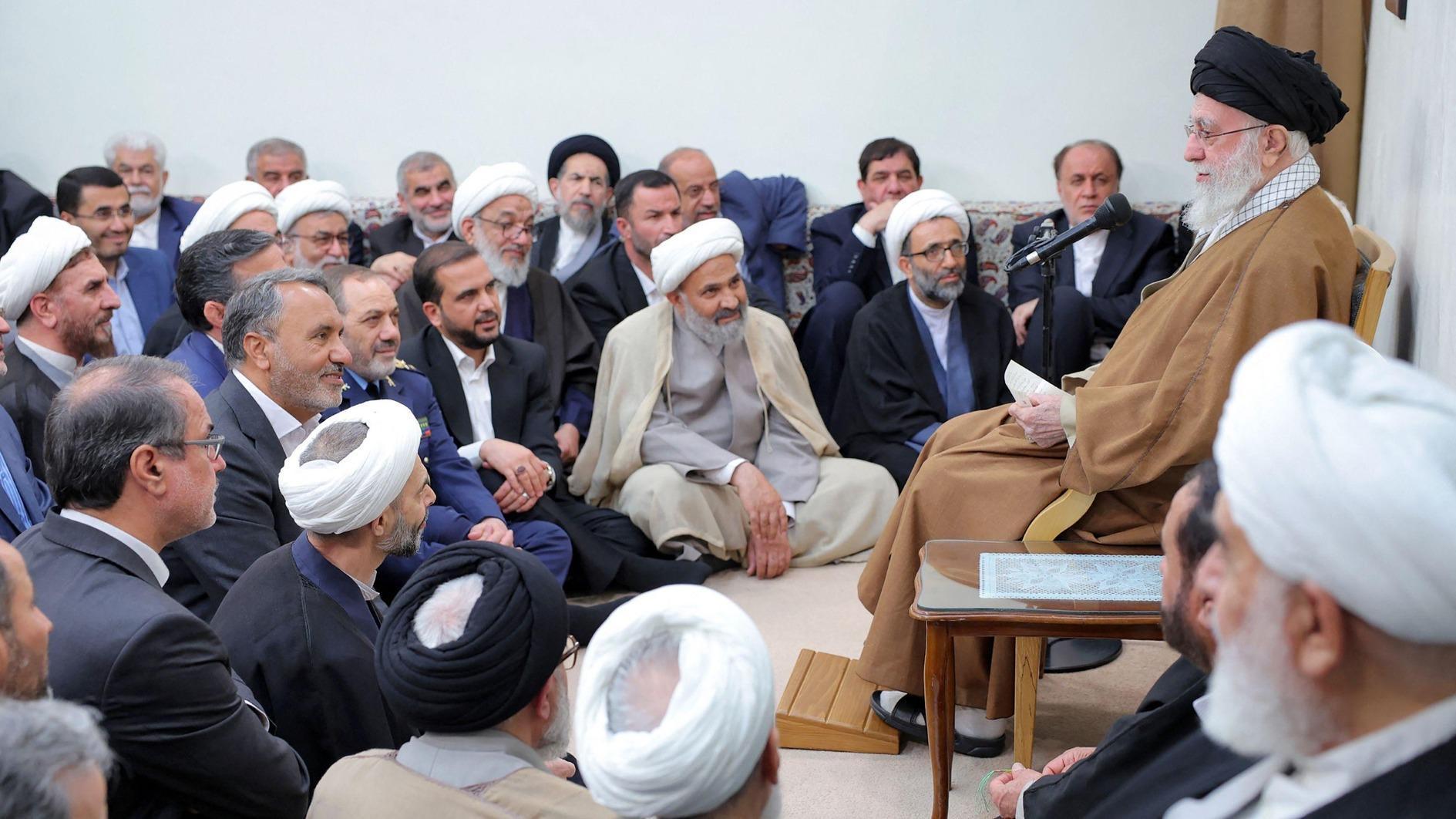Romney takes Iowa by eight votes
DES MOINES - Agence France-Presse

Republican presidential hopeful and former U.S. Sen. Rick Santorum greets supporters after giving his speach at the Stoney Creek Inn on January 3, 2012 in Johnston, Iowa. AFP PHoto
Mitt Romney took over Iowa caucus just by eight votes, CNN reported.
Longtime favorite Mitt Romney and Christian conservative Rick Santorum slugged it out to a virtual dead-heat Wednesday in a dramatic first vote to pick the Republican presidential nominee.
Santorum's late surge to share the spoils in Iowa leaves Romney, the former governor of Massachusetts, bloodied but still well placed to be the eventual Republican standard-bearer to take on President Barack Obama in November.
If it was a disappointing night for Texas congressman Ron Paul, who ended up in third after leading many pre-election polls, it was a disastrous one for Texas Governor Rick Perry, who finished fifth and is now reassessing his bid.
On a nail-biting night, Romney and Santorum traded places several times before ending with 25 percent of the vote each, ahead of Paul on 21 percent, with 99 percent of precincts reporting.

Source: Google Maps
Former House speaker Newt Gingrich trailed in fourth with 13 percent
"Game on!" Santorum said late Tuesday to supporters in Johnson, Iowa after his exhaustive months-long, on-the-ground campaign paid off by propelling the long-shot hope into the premier tier of Republican contenders.
Romney, a big favorite to claim victory in the second contest in New Hampshire next week, praised Santorum's effort before rounding on the man he hopes to beat in November -- Obama.
"The gap between his promises four years ago and his performance is as great as anything I've seen in my life," he told supporters in Des Moines. "We're going to change the White House and get America back on track." After a months-long campaign onslaught -- barrages of television attack ads, telephone calls and mailings, candidates blitzing across the state -- Iowans headed into hundreds of caucus sites around the mostly rural heartland state.
They gathered in places like school gymnasiums, libraries and church basements to speak out in front of neighbors on behalf of their chosen candidate to battle Obama and then vote by secret ballot.
The Iowa caucuses came against the backdrop of a sour, job-hungry US economy that weighs heavily on the embattled Obama's bid for a second term, four years after he promised "hope and change" in his historic 2008 victory.
The president, in a message beamed to Democrats holding their own caucuses across this mostly rural state, pleaded with them to stick with him, saying: "Change is never easy." "The problems that we've been dealing with over the last three years, they didn't happen overnight and we're not going to fix them overnight. But we've been making steady progress as long as we can sustain it. And that's what this is going to be all about," he said.
The quirky Iowa voting process does not directly award delegates to the party's nominating convention this summer, and its strength lies in its timing: It can set the tone for the rest of the state-by-state battle, lift or bury a sagging campaign, and add luster to a shining presidential prospect.
In this case Santorum, a former US senator, surged after once being given up as politically dead, while Minnesota congresswoman Michele Bachmann, who finished with just five percent of the vote, and Perry had disastrous nights.
"With the voters' decision tonight in Iowa, I have decided to return to Texas, assess the results of tonight's caucus, determine whether there is a path forward for myself in this race," Perry told supporters.
Romney has made little secret that he hopes his strong finish in Iowa, a romp in New Hampshire, and another success in South Carolina may give him a lock on the nomination months before the general election.
Paul's unorthodox libertarian views have earned him a devout following, but he is seen as uncompetitive in other states, while Santorum, 53, faces an uphill fight to match Romney's massive national organization.
Still, while Romney's massive campaign warchest and high-profile endorsements have fed his image as the candidate to beat, he faces stubborn doubts about his conservative credentials, as well as his Mormon faith, and has been unable to increase his support among Republican voters nationwide above 30 percent.
Iowa -- where unemployment is well below the national average -- is also an unreliable predictor of presidential fortunes: Senator John McCain, the eventual nominee in 2008, came in fourth that year.
Former US envoy to China Jon Huntsman skipped Iowa in favor of focusing on New Hampshire, where Romney enjoys a considerable lead.
















